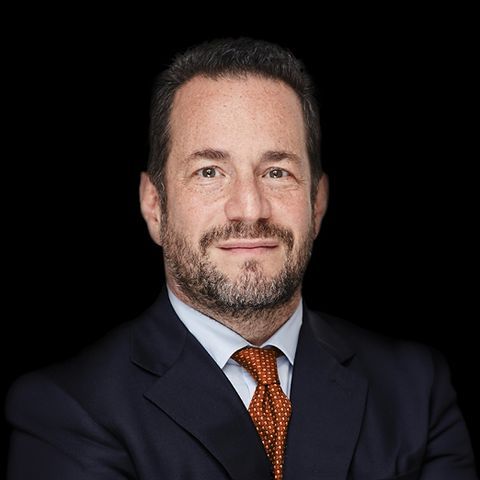Alerts
SEC Charges Hedge Fund Manager with Short-and-Distort Scheme
September 14, 2018
On Sept. 12, 2018, the U.S. Securities and Exchange Commission charged the principal of a hedge fund manager and the hedge fund manager itself with illegally profiting from a scheme to drive down the price of Ligand Pharmaceuticals Inc. (“Ligand”), generating approximately $1.3 million in illegal profits. The SEC’s complaint[1] charges that Gregory Lemelson and Massachusetts-based Lemelson Capital Management LLC (“LCM”) issued false information about Ligand after Lemelson took a short position in Ligand on behalf of The Amvona Fund (“Amvona”), a hedge fund LCM advised and Lemelson partly owned.
The regulatory action follows the Commission’s stated objective of protecting retail investors and is a continuation of a multi-year effort by the SEC to monitor hedge funds (and others) using social media to disseminate information about public companies.
Alleged Misconduct
The SEC alleges that from June through October 2014, Lemelson lied about Ligand on social media, radio programs, written interviews and in papers he published as research reports in an effort to shake investor confidence in the company, lower its stock price and increase the value of his short position. These false claims included that the company was on the brink of bankruptcy and that its investor relations firm agreed with Lemelson’s view that its flagship drug, Promacta, was going to become obsolete.
Lemelson also allegedly misled investors by citing a European doctor’s negative views on Promacta, without revealing the doctor was Amvona’s largest investor and had a significant financial interest in seeing Ligand’s stock price decline. Lemelson allegedly distributed his fraudulent reports to PR Newswire, Street Insider, USA Today and other press resources and worked to have comments critical of him removed from news releases, including his statements on his alleged bias and lack of expertise.
According to the complaint, Ligand’s stock declined precipitously during the course of the alleged scheme. Lemelson, in response to the SEC’s complaint, alleges that he was simply acting as a whistleblower to bring to light a massive multi-year accounting fraud at Ligand.[2]
Regulatory Charges
The SEC’s complaint charges Lemelson and LCM with violating the antifraud provisions of the federal securities laws, including Section 10(b) of the Securities Exchange Act of 1934[3] and Rules 10b-5(a), (b) and (c) thereunder,[4] and both Lemelson and LCM with violating Section 206(4) of the Investment Advisers Act of 1940 (“Advisers Act”)[5] and Rule 206(4)-8 thereunder.[6] The SEC’s complaint seeks disgorgement of ill-gotten gains, interest and civil penalty. Further, the complaint includes Amvona as a relief defendant and seeks gains obtained as a result of Lemelson and LCM’s alleged misconduct.
Key Takeaways
Although the allegations in this case relate to spreading false information and “fake news,” hedge fund managers should be on notice that the SEC continues to review social media postings and related securities trading. The SEC has issued alerts to investors and filed several enforcement actions over the last few years targeting social media and investing.[7] Hedge fund managers should also expect that social media scrutiny by the SEC will only increase. The SEC recently announced its intention to purchase an off-the-shelf social media monitoring tool “that provides emailed alerts to SEC staff based on keyword searches for relevant topics with ability to monitor social media sites, including but not limited to Facebook, Twitter, Instagram, YouTube, Google+, and LinkedIn, and provides the ability to monitor public forums message boards and public new sites.”[8]
Among other things, the Lemelson case demonstrates that the SEC can aggressively pursue market manipulation claims and may challenge public statements (even where the author claims to have well-developed theses or to be acting in the public interest). While there is nothing inherently wrong with hedge fund managers publicly sharing their views about their investments, and while the use of social media by the investment community (and by company management) has become quite common, hedge fund managers need to ensure that, to the extent their personnel make public statements about investment opportunities, such statements are accurate, supported and well-documented. Hedge fund managers should also ensure that any public statements about investments that are made by the hedge fund manager’s personnel are approved or are permitted by the hedge fund manager’s policies (and, if sourced from third parties, consented to by the author), do not prejudice or disadvantage any clients, are consistent with their investment theses and do not contain material misrepresentations or omissions about the company.
Authored by Craig S. Warkol, Marc E. Elovitz and Brian T. Daly.
If you have any questions concerning this Alert, please contact your attorney at Schulte Roth & Zabel or one of the authors.
[1] Available here.
[2] On July 27, 2018, Ligand was sued for $3.8 billion by investors in eight funds. This followed multiple class-action lawsuits, alleging securities fraud, filed against Ligand beginning in 2016.
[3] 15 U.S.C. § 78j(b).
[4] 17 C.F.R. § 240.10b-5(a)-(c). Rule 10b-5(a), (b) and (c) prohibits any act or omission resulting in fraud or deceit in connection with the purchase or sale of any security.
[5] 15 U.S.C. § 80b-6(4).
[6] 17 C.F.R. § 275.206(4)-8. Section 206(4) of the Advisers Act prohibits an investment adviser from, directly or indirectly, engaging in any act, practice, or course of business that is fraudulent, deceptive, or manipulative. Rule 206(4)-8(a)(1) prohibits an adviser to a pooled investment vehicle from making any untrue statement of a material fact or omitting to state a material fact necessary to make the statements made, in the light of the circumstances under which they were made, not misleading, to any investor or prospective investor in the pooled vehicle.
[7] Investor alert available here. See also SEC v. Craig, where the defendant manipulated the share price of two publicly traded companies by tweeting false and misleading information. Available here. See also SEC v. McKeown and Ryan, where the defendants used their website, Facebook and Twitter to pump up the stock of microcap companies and later profited by selling the shares of those companies. Available here.
[8] Available here.
This communication is issued by Schulte Roth & Zabel LLP and Schulte Roth & Zabel International LLP for informational purposes only and does not constitute legal advice or establish an attorney-client relationship. In some jurisdictions, this publication may be considered attorney advertising. ©2018 Schulte Roth & Zabel LLP and Schulte Roth & Zabel International LLP. All rights reserved. SCHULTE ROTH & ZABEL is the registered trademark of Schulte Roth & Zabel LLP.



